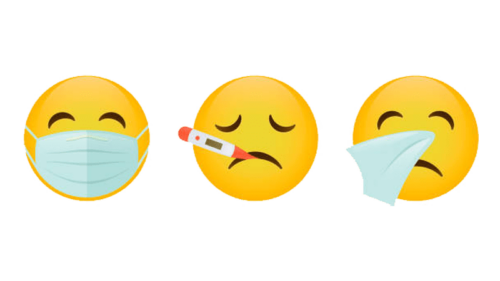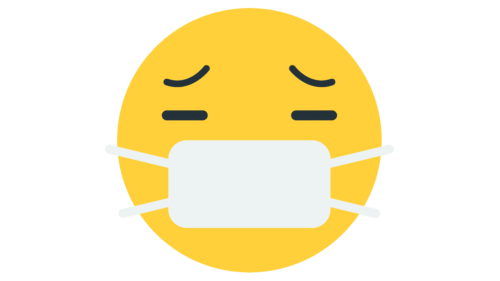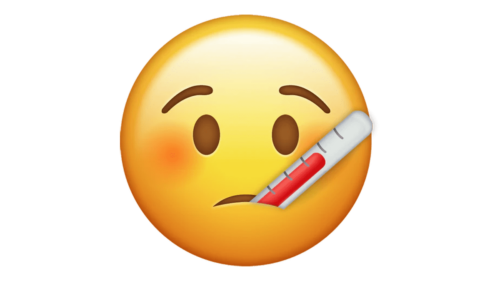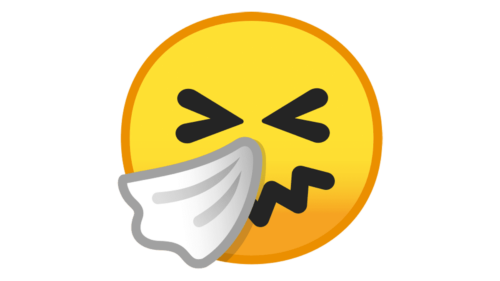😷 🤒 🤧
Among the huge variety of emoji in the standard Unicode set, you can find a suitable picture for almost any life situation or emotion. And illness is no exception. Of course, everything depends on the specific symptoms and condition of a person. There can be all sorts of combinations of emoticons, but today we will take a closer look at three of the most obvious variants of emoji that indicate illness or poor health.
😷 The “In Medical Mask” emoticon was assigned the code U+1F637, with which it was added to the Faces and Emotions section of the Unicode 6.0 standard in 2010.
🤒 The “With a thermometer in the mouth” emoticon was assigned the code U+1F912, with which it was added to the Faces and Emotions section of Unicode 8.0 in 2015.
🤧 The “Sneezes” emoticon was assigned the code U+1F927, with which it was added to the Faces and Emotions section of Unicode 9.0 in 2016.
Meaning of the Sick Emoji
😷 It can be used as a warning about the danger of infection, and evoked by corresponding emotional feelings. Thus the mask on the smiley face acts as a symbolic “barrier” in communication, although in remote communication over the Internet it can only be a warning, as one of the reasons for the impossibility of meeting in face-to-face contact because of this or that, which may possibly carry a certain, or undetermined danger.
Of course literally it does not mean coronavirus and was developed long before the epidemic, but became incredibly popular just during the pandemic. So it can be used to convey thoughts about the coronavirus, news about the epidemic, and personal attitudes about it all.
But its original meaning is: “in hospital”, “sick”, “someone is sick”, “protection”, “protective mask”. Now we can safely add “coronavirus”.
Wearing masks was popular in Asian countries long before the epidemic. Now it is customary to wear masks all over the world, they no longer cause neither surprise nor condemnation. The smiley face will be appropriate in any conversation about the disease, about the pandemic, about doctors, about hospitals.
If someone is in the hospital, they can send a similar emoticon. You can use this emoticon to express your fear of getting sick.
🤒 Literally, the meaning of this emoticon can be conveyed as follows: “with fever”, “sick”, “sick”, “high temperature”, “sick”.
This emoji is not cheerful at all, the expression of its face is due to the poor health.
Often this emoticon is sent to tell the interlocutor about their illness or poor health. For example: “I can’t go for a walk with you today because I have the flu”. Or they simply show their bad feeling and the corresponding mood. In response, as a rule, they want to hear words filled with sympathy and support. They can use this emoji to tell a relative or friend that they are feeling unwell or sick.
In continuation of the topic, this emoji can be used in the message as a kind of apology in explaining the reasons why one could not perform this or that promised action, or could not come to the expected meeting or date.
Perhaps the emoticon with a thermometer in the mouth can be often used by medical colleagues on this or that chat when discussing a particular disease when diagnosing a patient, where elevated temperature may be one of the key symptoms.
🤧 This emoticon is ambiguous. It has a literal meaning, but more often we use it to convey a slightly different emotion from its real meaning.
Literally, this emoticon means: sneezing or blowing a nose. However, more often it is put in a message if you want to convey the following thought: crying, grieving, sobbing, feeling sorry, condolence, sympathy, sadness or something even more dramatic or tragic.
You can send it when, for example, you are sick. But more often, when we want to convey the idea of illness, we send an emoticon with a thermometer, and this one we send when we want to say that we are grieving or crying. Although it originally means sneezing or even blowing your nose.
The Use of the Sick Emoji
Emoji from this category are usually sent for the purpose of:
- communicate a medical condition;
- sympathize;
- ask for help;
- to inform about the state of health of someone (a close person, a family member, a friend);
- to inform about the inability to fulfill a promise due to illness;
In general, they are sent in situations associated with a severe course of illness or poor health. As for the third emoticon from our list, as we have already written above, it can be used in other situations related to sadness and crying.
Conclusion
As you can see, sometimes the official name and the original meaning of the emoji changes, and what was a “sneezing” emoji becomes a “crying” emoji. So when sending such an emoticon to your friends make sure that you are understood correctly. As for the thermometer emoji, it’s probably the most obvious of the three, as the mask emoji has changed its meaning a bit and expanded its use since the COVID pandemic.










